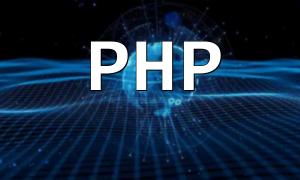A common reason for PHP server performance issues is insufficient hardware resources, such as low memory, CPU, or disk space. To resolve this, you can upgrade the server hardware configuration to ensure it can handle more requests and higher traffic.
Improper PHP configuration is another cause of performance issues. For instance, if the PHP memory limit is set too low, it may cause PHP applications to crash. The solution is to adjust PHP configurations based on actual needs.
Inefficient application code is also a major factor in server performance degradation. Heavy use of loops or recursion can significantly increase server load. Optimizing code by reducing loops and recursion can drastically improve server performance.
The database is a critical component of PHP applications, and slow database queries can severely impact the overall system performance. Optimizing database performance can be achieved by adding indexes, designing efficient queries, and using caching techniques to reduce the number of database queries.
Insufficient network bandwidth can slow down server performance, especially when applications need to fetch large amounts of data from external servers. Increasing the server's bandwidth or using a content delivery network (CDN) can help alleviate bandwidth pressure and improve server responsiveness.
If server hardware is inadequate, it is crucial to upgrade resources such as memory, CPU, or storage to handle larger traffic volumes.
Adjusting PHP settings based on the server's actual requirements can improve performance. For instance, increasing the PHP memory limit or extending the execution time limit can help improve performance.
<?php
// Increase PHP memory limit
ini_set("memory_limit", "256M");
// Extend PHP execution time limit
set_time_limit(300);
?>Optimizing the application code can significantly enhance performance. For example, transforming complex loops into efficient array traversals or changing recursive algorithms to iterative ones can reduce unnecessary computations.
<?php
// Convert loop to array traversal
$array = array(1, 2, 3, 4, 5);
foreach ($array as $value) {
echo $value;
}
// Convert recursion to iteration
function factorial_iterative($n) {
$result = 1;
for ($i = 1; $i <= $n; $i++) {
$result *= $i;
}
return $result;
}
?>Optimizing database queries is a key step in improving overall server performance. Adding indexes to database tables, reducing redundant queries, or using caching to store frequent query results can boost performance.
<?php
// Add index to database table
$sql = "CREATE INDEX index_name ON table_name (column_name)";
$result = $Mysqli->query($sql);
// Use cache to reduce database query frequency
$cache = new Memcached();
$cache->add("key", "value");
$value = $cache->get("key");
?>If your server needs to frequently interact with external servers for large data retrieval, increasing network bandwidth or using a CDN can reduce data transfer bottlenecks and improve overall response times.
These are some common optimization techniques for improving PHP server performance. By properly configuring the server, PHP, and database systems, you can significantly enhance server response times and stability, leading to a better user experience.








![How to Fix PHP Error: Unexpected ']' Symbol Leading to Syntax Error](/files/images/20250714/202507141353493283.jpg)
